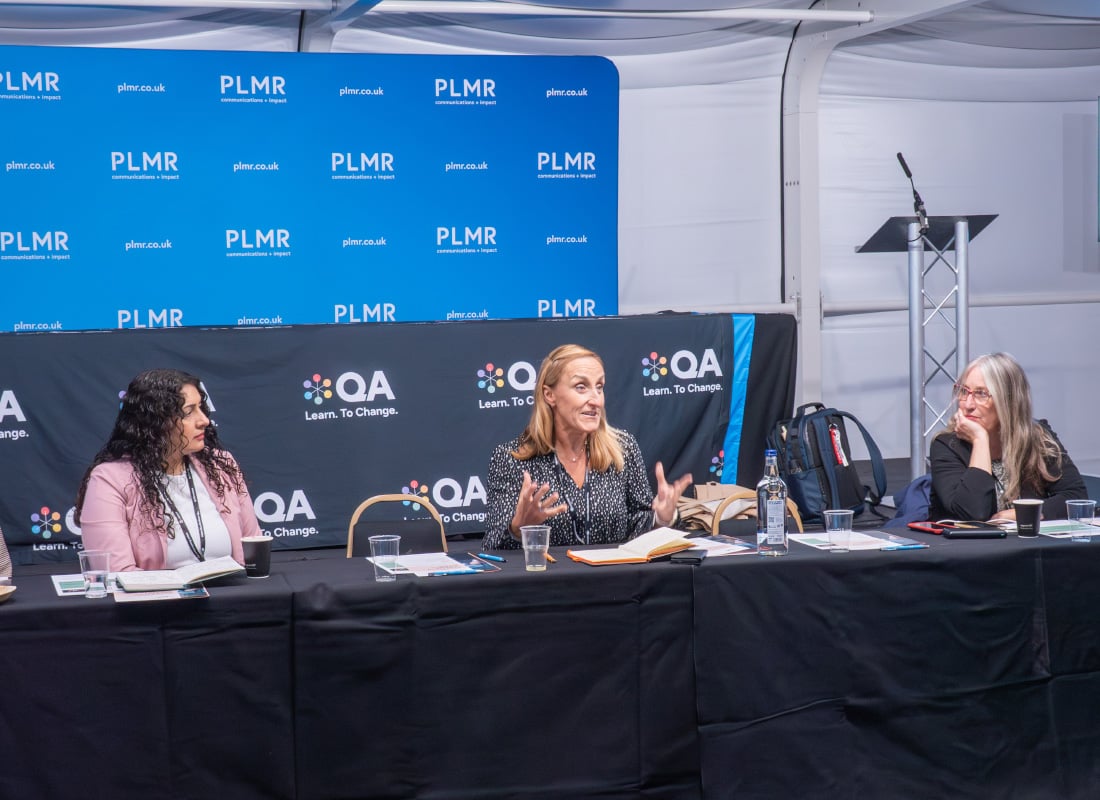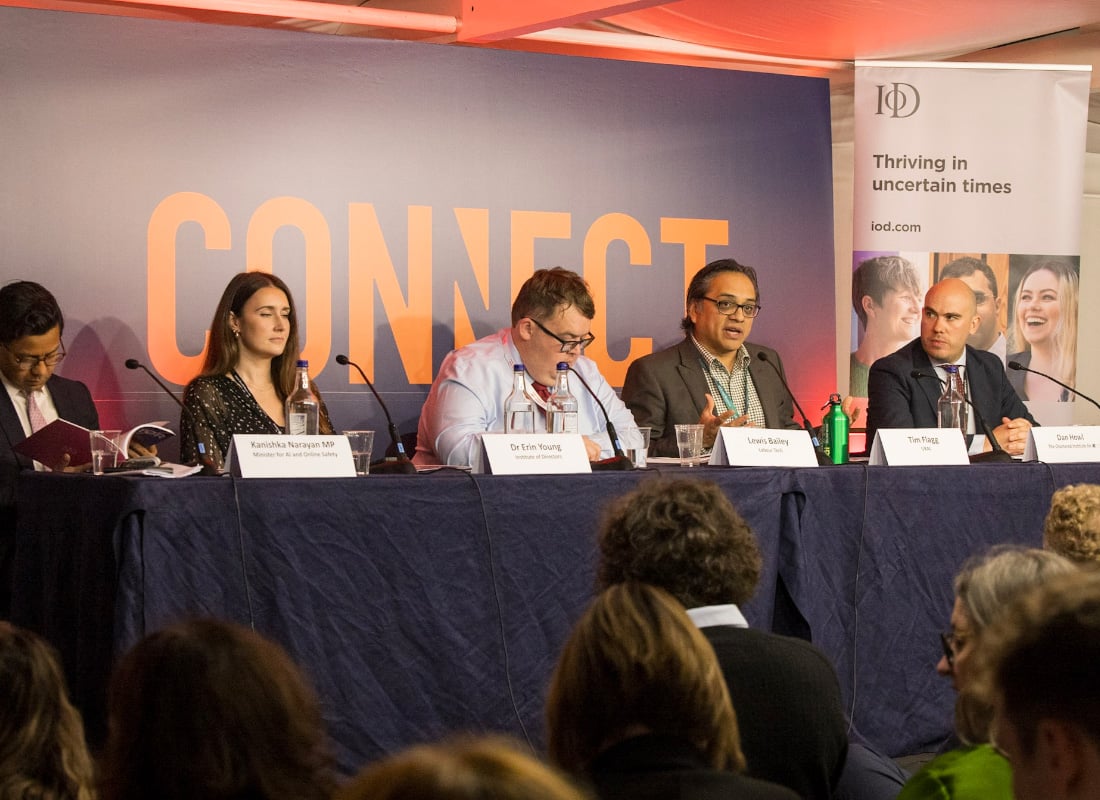Last week, the BCS Policy Team joined delegates from across industry, academia, civil society and politics for the annual Labour Party Conference in Liverpool. We were there to represent the interests, values and expertise of our BCS membership community, at the heart of the policymaking system.
As an apolitical organisation, BCS does not attend this or any other conference as an endorsement of the host organisation, but rather to influence the government of the day alongside our peer organisations.
Party conferences are an opportunity for organisations such as BCS to influence the ideas within government and society. Our BCS team were there to make sure that current ideas included those that will make IT good for society.
We also took with us our new report: ‘Trustworthy Technology: Meeting Society’s Expectations for AI’ containing original research commissioned through YouGov showing that the public would trust technology more if they knew that those working on it were professionally registered.
Scores of meetings and conversations took place in between panels and roundtables as BCS looked to make its mark on the showpiece event of the political calendar. Below is a rundown of the highlights.
AI in Political Campaigns
On Monday morning, our Head of Policy, Dan Howl was invited to speak on the issue of the use of AI in political campaigns.
Here, we argued that there are specific ethical considerations for political campaigners. At it’s best, AI can be a useful tool to strengthen democracy, inclusion and participation - as we’ve seen in places like India where AI has been used as a language translation tool to reach more voters. However, voters need to genuinely trust the use of AI and political operatives need to abide by greater levels of transparency and openness than those in business.
As in business, the advantages of AI in campaign contexts lie in utilising it for basic administrative tasks, leaving campaigners more time for real conversations with voters on the doorstep. Research shows that voters want to have those conversations, and doing so increases trust in democracy.
AI in the Public Sector
On Monday afternoon, Dan attended a private roundtable hosted by Labour Digital to discuss the use of AI in the public sector. Attended by organisations across civil society, industry as well as MPs, this was a perfect opportunity to explain in detail our recent report on trust in public sector AI.
For you
Be part of something bigger, join BCS, The Chartered Institute for IT.
We were joined by Steve Yemm MP and Chi Onwurah MP, Chair of the Science, Innovation and Technology Select Committee.
Steve Yemm MP cited that 80% of his constituency caseload relates to ‘state failure’, with BCS responding by claiming that if the public genuinely trusted AI, they would demand more of their public services. There is low hanging fruit on the issue of trust in AI – not least moving towards greater accountability of those working in AI with the use of a public register.
AI Skills
On Tuesday morning, Claire Penketh, BCS’ Senior Policy and Public Affairs Manager was invited to speak at a private roundtable on the issue of AI skills. Hosted by training provider QA, it explored how the UK can harness AI to drive inclusive economic growth, upskill the workforce, and build public trust.

Claire made the point that BCS firmly believes that digital skills education must start early. She added that BCS advocates for integrating AI into teacher training, not just to enhance lesson planning and productivity, but to ensure educators are equipped to guide students in a rapidly evolving digital landscape.
AI in Business
On Tuesday morning, Dan spoke on a panel alongside the Minister for AI and Online Safety, Kanishka Narayan MP, Dr Erin Young of the Institute of Directors, Tim Flagg, CEO of UKAI which was chaired by Lewis Bailey of Labour Tech.

On the issue of AI in business, we made the case for senior digital leaders to be embedded on company boards. Whether it is AI or Information Security, competence in technology cannot be seen as a ‘bolt-on’ feature for HR, facilities or any other executive leader. It’s crucial that companies look to genuine digital professionals for guidance on these issues, and this is best achieved by giving those professionals the ability to advise at board level. Doing so significantly reduces risk in a world where cyber incidents are becoming normalised and where digital transformation increasingly defines business success.
The Prime Minister’s Speech
BCS were invited into the main hall to hear directly from Prime Minister, Sir Keir Starmer, as he gave one of the most engaging speeches of his political career. This included the announcement of 'NHS Online', a virtual hospital that will deliver online services from 2027.
It was also notable that the government will abandon the target of sending 50% of young people to university. The Prime Minister chose to frame this as a class issue and delivered it in a powerful way using the example of his own dad - did you know he was a toolmaker?
















